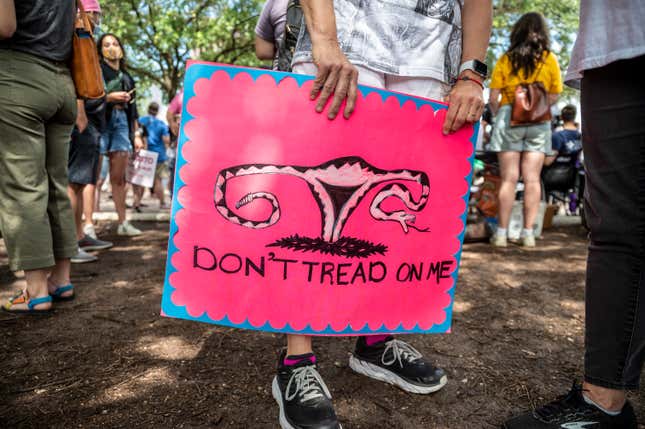What We Know About the Conservative Lawyer Behind S.B. 8
Jonathan Mitchell, the architect of Texas' six-week abortion ban, hit on a legal loophole when he was drafting "pro-life" city ordinances
AbortionPolitics

According to a New York Times report, the origins of S.B. 8—the six-week abortion ban that has been in effect in Texas for well over a week—can be traced back to a Chick-fil-A.
In spring 2019, Mark Lee Dickson, the director of the anti-abortion group East Texas Right to Life, was sitting in one of the fast food restaurant’s local franchises, struggling to draft a piece of legislation that would help the city of Waskom, Texas, ban abortion. In need of some advice, he texted a Republican state senator who referred him to Jonathan Mitchell, a former law clerk of the late Supreme Court Justice Antonin Scalia who was running a one-man law practice. According to the Times, Dickson called Mitchell and the state Senate Republican from his car in the parking lot. During the three-way call, Mitchell suggested Dickson write in a provision that would prohibit the government from enforcing the abortion ban and instead empower private citizens to enforce the ban through civil lawsuits. (This is probably starting to sound familiar!) Though he’d proposed the idea in a 2018 law review article, he had not yet realized it through legislation.
-

-

-

-

-

-

-

-

-

-

-

-

-

-

-

-

-

-

-

-

-

-

-

-

-

-

-

-

-

-

-

-

-

-

-

-

-

-

-

-








































